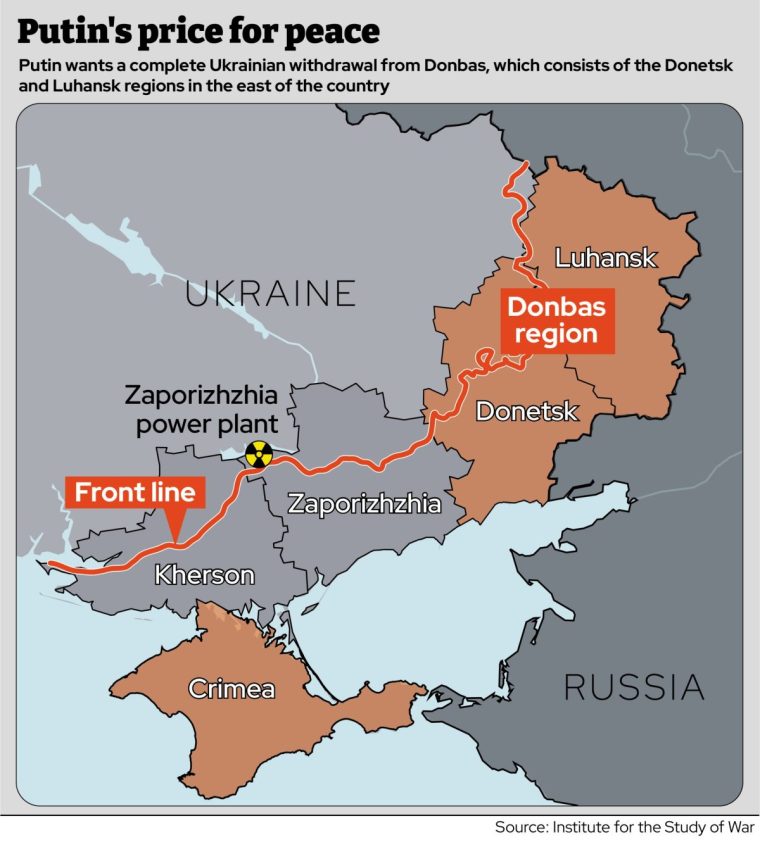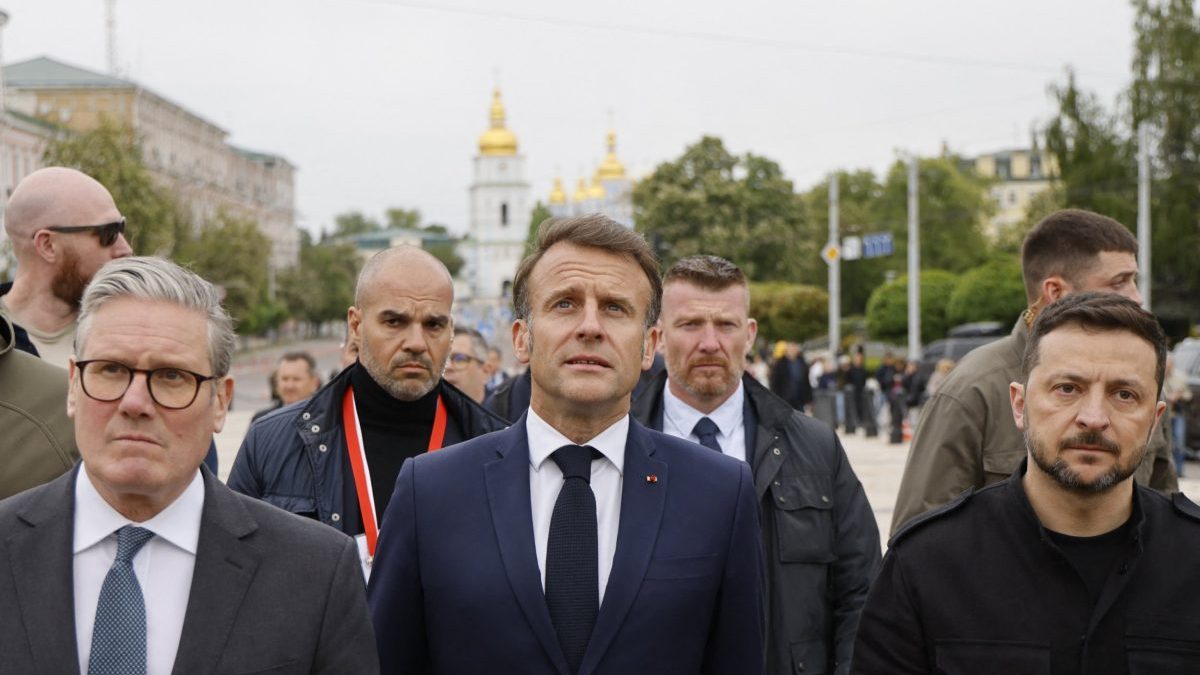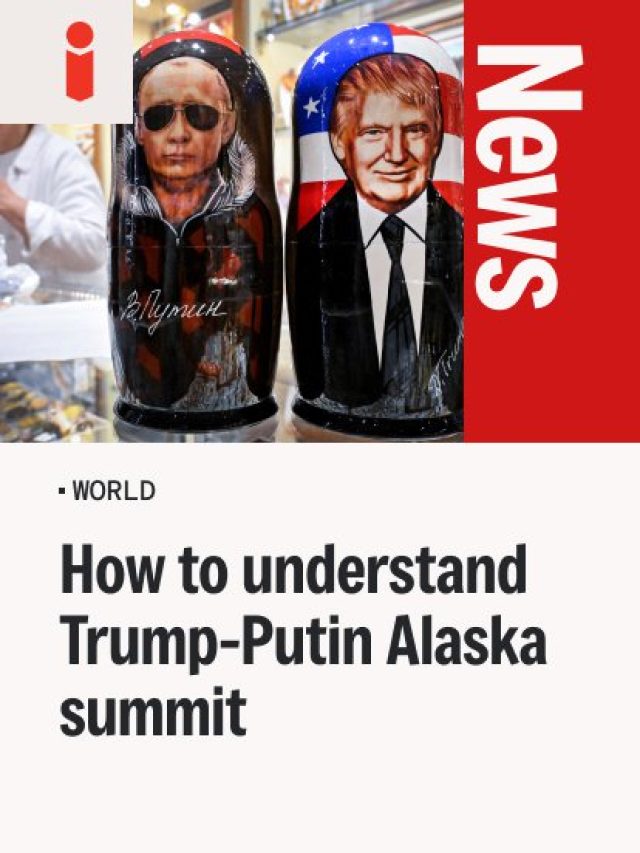In an unprecedented show of diplomatic unity, the PM and his counterparts will fly to Washington to support Ukrainian President Volodymyr Zelensky
Sir Keir Starmer will join Europe’s leaders in issuing a rallying call for the US to push Russia into ending fighting in Ukraine in crunch White House peace talks on Monday.
In an unprecedented show of diplomatic unity, the PM and his counterparts will fly to Washington to support President Volodymyr Zelensky, as European leaders welcomed US commitments to providing security guarantees for Ukraine.
And their key message for the US commander-in-chief, spoken by Zelensky on Sunday in a Brussels press conference alongside European Commission President von der Leyen, will be: “We need the United States on our side.”
New FeatureIn ShortQuick Stories. Same trusted journalism.
Monday’s talks were initially expected to include just Zelensky and US President Donald Trump.
But European nations rallied around Ukraine in efforts to present a united front in the US because Zelensky said he could not negotiate with Russia while under fire.
Starmer co-chaired a meeting of the so-called coalition of the willing nations alongside French President Emmanuel Macron on Sunday afternoon.
The leaders gathered in a virtual meeting to coordinate their approach to the talks with Trump this week.
Starmer updated them on commitments Trump had made to providing security guarantees to Ukraine, which was welcomed, it is understood.
And he insisted any discussions on the future of Ukraine must involve President Zelensky.
Starmer and Macron said they would “play a vital role” in policing any ceasefire and supporting an American security guarantee “through the Multinational Force Ukraine, among other measures”.
“They re-emphasised the readiness to deploy a reassurance force once hostilities have ceased, and to help secure Ukraine’s skies and seas and regenerate Ukraine’s armed forces,” a statement added.
The countries also threw their support behind Zelensky for his “desire for a just and lasting peace” and praised Trump’s “commitment to providing security guarantees to Ukraine”.
Starmer, alongside the leaders of the European Commission, Italy, France, Germany, Finland and Nato, will be seeking to avoid a repeat of Zelensky’s infamous showdown with the US President last time the Ukrainian leader was in the White House.
Despite huge hopes for the Alaska meeting, it initially appeared little progress had been made as Trump shifted away from insisting on an immediate ceasefire to aligning with Putin that his focus was on a long-term peace agreement.
Trump was said to be considering Russia’s demands to bring an end to the conflict, which include a land grab of two occupied Ukrainian regions: Donetsk and Luhansk.
News coming out of the US on Sunday suggested that Putin had agreed to make concessions, including to an American security guarantee and forgoing some demands over territory.
Europe has ramped up pressure on the US to agree to Nato-style Article 5 security commitment, which would see any attack on Ukraine treated as an attack on all nations.
And Witkoff, Trump’s special envoy, said Putin had agreed to such protection for Ukraine for the first time.
He also said Moscow has made “some concessions” concerning Ukraine’s five regions occupied by Russia.
But he said the future of the Donetsk region constituted an “important discussion” which would continue in the coming days.

Zelensky insisted he could not negotiate Russia’s demands while his country was battling Russian forces. And he said “everyone agrees” borders “must not be changed by force”.
The Ukrainian leader urged Trump not to fall for what he said was Putin’s bid to keep the fighting going in Ukraine, and as he warned, Russia must be pushed into “real negotiations” for a peace deal.
It would “take time” to go through Russia’s demands, he said, adding: “It is impossible to do this under the pressure of weapons.”
Speaking in Brussels, Von der Leyen opted not to condemn Trump’s apparent move away from seeking a ceasefire, suggesting it was a matter of rhetoric and either arrangement would “stop the killing”.
Zelensky said he agreed and urged the US to support him in seeking the “correct steps to have lasting peace, to stop Putin” rather than simply a pause in the war.
But earlier, in a social media post, he pushed against Russia’s refusal to lay down arms temporarily.
“If they lack the will to carry out a simple order to stop the strikes, it may take a lot of effort to get Russia to have the will to implement far greater – peaceful coexistence with its neighbours for decades,” he warned.
And he rejected Putin’s request for Ukraine to withdraw from the Donbas – arguing Russia has been unable to take Donetsk for 12 years.
Zelensky said the current frontline is the starting point for talks.
European allies are also preparing the next wave of sanctions against Russia.
Earlier, Zelensky had insisted economic punishments “show we are serious”.
Downing Street said Starmer and allies stand ready to support the next phase of talks to end the war.
“At the meeting that will take place at the White House tomorrow, the Prime Minister, with other European partners, stands ready to support this next phase of further talks and will reaffirm that his backing for Ukraine will continue as long as it takes,” a statement from No 10 said.
US Secretary of State Marco Rubio dismissed suggestions that European allies were coming to Washington to stop Zelensky from being “bullied” by Trump.
He said it was “not true” and described it as a “stupid media narrative”.
“We’ve been working with these people for weeks on this stuff. They’re coming here tomorrow because they chose to come here tomorrow. We invited them to come,” he said.
Rubio also criticised claims that the US had “rolled out the red carpet” for Putin but not for the Ukrainian president, adding: “We’ve had one meeting with Putin and, like, a dozen meetings with Zelensky.”

